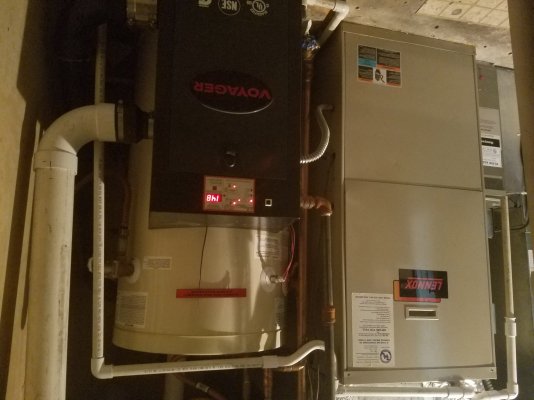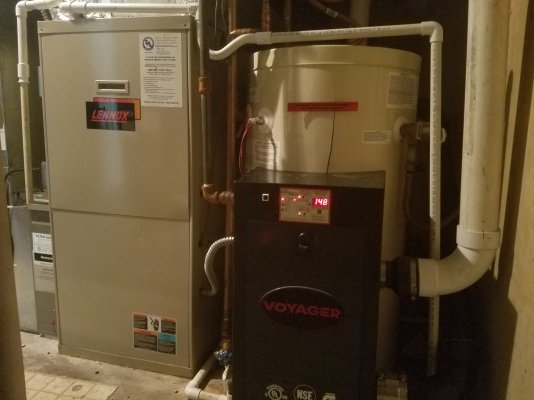Big_Hitter
Give me a museum and I'll fill it. (Picasso) Give me a forum ...
anyone have a hydronic furnace?
this is essentially a water heater hooked up to run hot water through a an air handler and it also supplies hot water to the house
my tank started leaking and am looking at options, including replacing it with a forced air unit.
thanks
this is essentially a water heater hooked up to run hot water through a an air handler and it also supplies hot water to the house
my tank started leaking and am looking at options, including replacing it with a forced air unit.
thanks



